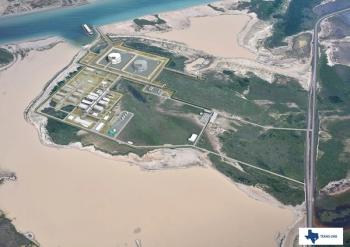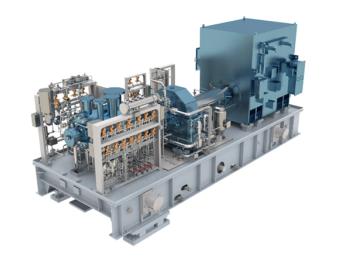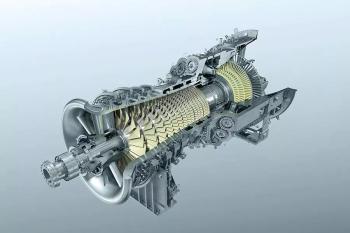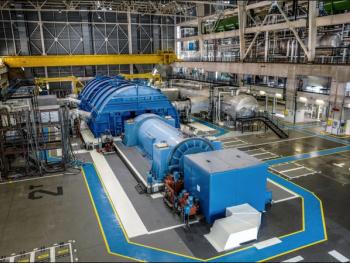
Rolls-Royce Gensets: Low-Carbon Power in Remote Locations
Michael Stipa and Aslan Karaismailoglu of Rolls-Royce share how mtu gas-fired gensets help customers operate independently from the national grid.
In an effort to reduce air pollution and carbon emissions, facilities such as the Egyptian Wood Technology Co.’s (WOTECH) plant, Africa's first medium-density fiberboard production facility, have been established. Rolls-Royce
“When supporting a project such as the WOTECH facility, where there is no access to the grid utility, the dependability of our mtu gas-powered gensets is paramount,” said Tobias Ostermaier, President of Stationary Power Solutions at Rolls-Royce.
Aslan Karaismailoglu, Regional Sales Manager at Rolls-Royce Solutions Augsburg, said that although this Egyptian installation is nothing unique, “it helps the customer be independent of national grid supply and avoid power interruptions, which means it safeguards production. Further, by using the heat generated from the cooling system of the gas genset and fewer power losses due to short busbar distances between the gas genset and customer consumers, the customer gets a very efficient power supply.”
Karaismailoglu said mtu gas gensets have a fuel-driven internal combustion engine, and in the case of WOTECH, “the fuel is gaseous natural gas from the local pipeline. The engine is coupled to an alternator that is turned through a shaft. This process generates electricity that is fed to the customer’s busbar, where all consumers are connected.”
Genset Specifics
The mtu Series 4000 L64 FNER genset within combined heat-and-power applications has a 44% electrical efficiency and a total efficiency of up to 90%. Compared to other power generation technologies, this natural gas-driven engine has a high potential to reduce CO2 emissions.
“From all fossil fuels, natural gas has the lowest CO2 emission factor,” said Michael Stipa, Head of Business Development, Rolls-Royce Power Generation. “Furthermore, biomethane and biogas, which may be considered as CO2 neutral, can be used in our gas engines. Air pollution, such as NOx and CO, are very low on lean-burn engines and can be reduced by more than 90% when using exhaust after-treatment systems.”
Stipa said these gensets also exhibit extensive time before overhaul (TBO)—84,000 hours—during continuous operation mode. In order to achieve such TBO, maintenance intervals must be followed as directed or customers can enter long-term service agreements with Rolls-Royce. From here, the company will ensure timely, specified maintenance.
African Projects & Other Trends
Stipa said Rolls-Royce’s mtu solutions are supporting further infrastructure developments in Africa. “For example, in Tanzania, Rolls-Royce is partnering with Karimjee Group to drive power solutions. This is not limited to remote facilities with no grid connection but will enable quick economic development and thus increase wealth.”
Stipa said he’s seeing two trends emerging in remote power/areas without access to the grid:
“Small, remote locations without grid connections typically receive power via renewable installation and integration, i.e., photovoltaics (PV). Battery energy storage solutions typically support PV or, if availability is an important factor, Rolls-Royce will add a diesel genset.”
And second: Economic growth is the basis for the development of wealth. “In many areas, the build-up of energy infrastructure must match the pace of economic growth. In many areas, building up energy infrastructure is not meeting the pace of economic growth. Therefore, power and grid supply become a bottleneck, even if the grid is available in general. For these cases, additional power generation demand from industrial parks can be supplied via smaller, decentralized power solutions.”
For example, Rolls-Royce partnered with Mikano International to develop an industrial park in Lagos, Nigeria, for Eko Atlantic’s IPP Project.
Newsletter
Power your knowledge with the latest in turbine technology, engineering advances, and energy solutions—subscribe to Turbomachinery International today.




